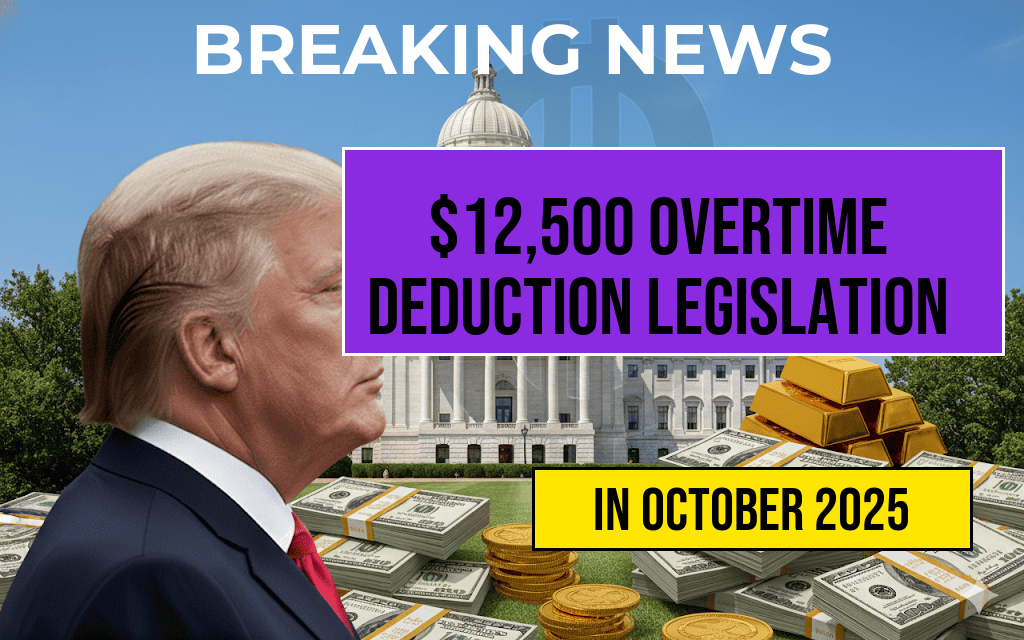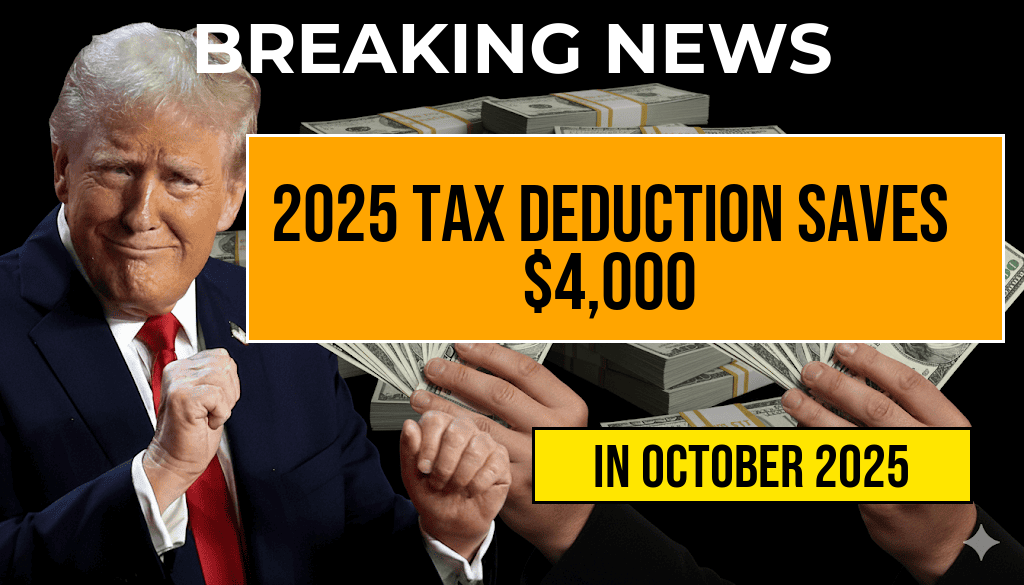The Biden administration has announced a substantial update to federal tax policies, making U.S.-assembled vehicles eligible for an auto-loan interest deduction of up to $10,000. This change aims to incentivize domestic vehicle manufacturing and purchasing, potentially providing significant financial relief for consumers financing new car purchases. The policy, effective immediately, broadens the scope of tax benefits previously limited or unavailable to many buyers, especially those purchasing vehicles assembled in the United States. Experts suggest that this move could reshape consumer buying behavior and invigorate the domestic auto industry, which has faced numerous challenges in recent years, including supply chain disruptions and evolving emission standards. The following analysis explores the details of the policy, eligibility criteria, and potential implications for consumers and manufacturers alike.
Understanding the New Tax Deduction Policy
Scope and Eligibility
The revised policy stipulates that qualifying U.S.-assembled vehicles purchased with an auto loan can now be eligible for an interest deduction of up to $10,000 over the loan’s lifetime. To qualify, vehicles must meet specific criteria:
- Manufactured primarily in the United States, with final assembly completed domestically.
- Purchased new and financed through an eligible auto loan.
- Intended for personal use, not commercial or leasing purposes.
This change effectively lowers the cost barrier for consumers considering domestically assembled cars, especially those with longer-term financing arrangements. The policy applies to vehicles financed after January 1, 2024, allowing buyers to capitalize on the deduction when filing their 2024 tax returns.
How the Deduction Works
Unlike traditional deductions limited to certain expenses, this new policy allows car buyers to deduct the interest paid on their auto loans directly from their taxable income, up to the $10,000 cap. For example, a driver who finances a $30,000 vehicle at a 4% interest rate over five years may pay approximately $2,000 in interest annually. Under the new rules, they could potentially deduct this amount from their taxes, reducing their overall tax liability significantly.
It’s crucial to note that the deduction is contingent upon itemizing deductions on federal tax returns. Taxpayers should consult with a tax professional to determine eligibility and ensure proper documentation of their interest payments.
Industry and Consumer Impact
Stimulating Domestic Manufacturing
The policy underscores a broader federal effort to bolster American auto manufacturing. By incentivizing consumers to purchase vehicles assembled domestically, the government aims to support thousands of manufacturing jobs and stimulate regional economic growth. The auto industry, which has seen fluctuating demand and intensifying competition from imports and electric vehicle startups, stands to benefit from increased sales driven by these tax incentives.
Consumer Benefits and Challenges
| Scenario | Interest Paid | Potential Tax Deduction | Estimated Savings |
|---|---|---|---|
| Example 1 | $2,000/year | $10,000 (lifetime limit) | $2,000/year (assuming full utilization) |
| Example 2 | $1,000/year | $10,000 (lifetime limit) | $1,000/year |
While the deduction offers significant savings, consumers must be aware of certain limitations. The $10,000 cap applies to total interest deductions over the loan’s lifespan, not annually. Additionally, the benefit accrues only if the taxpayer itemizes deductions, which may not be advantageous for those taking the standard deduction.
Furthermore, some industry analysts caution that the policy’s success depends heavily on consumer awareness and the ability of dealerships to communicate these benefits effectively. There is also ongoing debate about whether this incentive will favor larger automakers with more extensive U.S. manufacturing operations or create disparities among buyers based on income and tax filing status.
Official Statements and Industry Reactions
The Department of the Treasury issued a statement emphasizing the administration’s commitment to strengthening domestic manufacturing and supporting American consumers. “This new policy provides a tangible benefit to those investing in vehicles built in the United States, fostering economic growth and job creation,” the statement read.
Major automotive industry groups have expressed cautious optimism. The U.S. auto industry sees potential for increased sales, particularly among budget-conscious buyers. However, some manufacturers highlight logistical challenges in certifying vehicles for the program and ensuring compliance with the new criteria.
Additional Considerations and Future Outlook
Policy Limitations and Possible Revisions
While the current policy marks a significant shift, experts anticipate potential revisions as stakeholders assess its efficacy. Questions remain about how to extend benefits to electric vehicles, hybrid models, or vehicles assembled with significant foreign parts. Ongoing legislative debates could modify the scope or cap of the deduction in the coming months.
Consumers are advised to stay informed through official IRS guidance and consult tax professionals to maximize benefits and ensure adherence to eligibility requirements. As the program unfolds, industry analysts will closely monitor its impact on vehicle sales, manufacturing trends, and the broader economy.
Resources for Consumers
- Internal Revenue Service (IRS): Official guidance on tax deductions and eligibility.
- Forbes article on auto-loan deductions
- Wikipedia: Auto industry in the United States
Frequently Asked Questions
What vehicles qualify for the U.S. assembled vehicle auto-loan interest deduction?
Vehicles that are assembled in the U.S. and meet specific eligibility criteria are qualified for the up to $10,000 auto-loan interest deduction. This includes vehicles primarily assembled domestically, ensuring they meet the requirements set by the IRS.
How much can I deduct on my auto-loan interest for U.S. assembled vehicles?
You can deduct up to $10,000 on the interest paid on your auto loan when purchasing a U.S.-assembled vehicle. The deduction helps reduce your taxable income, making it more affordable to own a qualified vehicle.
Are there any restrictions or requirements to qualify for this deduction?
Yes, to qualify, your vehicle must be assembled in the U.S. and used primarily for personal transportation. Additionally, your auto loan must be used to finance the vehicle purchase, and you must itemize deductions on your tax return.
Can I claim this deduction if I used a loan from a private lender?
Yes, as long as the loan is used to finance a qualified U.S.-assembled vehicle, you can claim the interest deduction. The key factor is that the loan funds are used for the vehicle purchase, regardless of the lender type.
When is the best time to claim the auto-loan interest deduction?
You should claim the interest deduction during the tax year in which you paid the interest. Ensure you keep documentation such as loan statements and proof of vehicle assembly eligibility to support your claim during tax filing.








